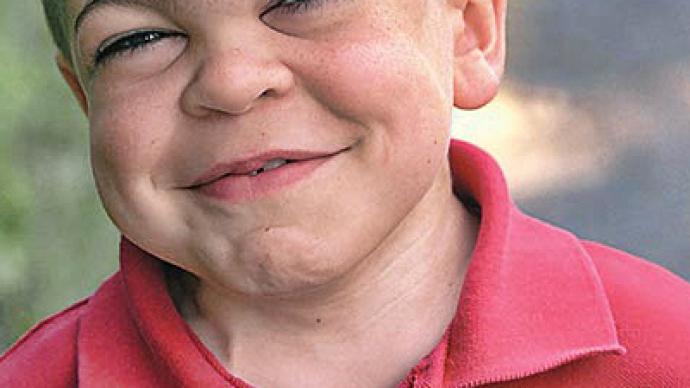Rare disease and lack of money – death sentence for kids

Many Russian children suffering from rare forms of hereditary illnesses die because their treatment is too expensive for their families. But it seems there is now hope of free treatment for such seriously ill kids.
The immense cost of treating children with Hunter syndrome is usually impossible for parents to meet. The money is available, but the problem is it is not easy to access.Hunter syndrome is an inherited condition that mostly affects boys. It is a disease in which long chains of sugar molecules are not broken down correctly and build up in the body leading to worsening of mental functions and death.Sometimes it is the ZIP-code lottery that defines who will live and who will die. Children of the same age who live in one country and have the same debilitating condition may or may not receive the necessary treatment – it can all depend on whether they were born in the capital or in a small town. “Some mothers ask me whether it’s all worth it, all this extremely expensive treatment and the nerves. They told me, look, he’s ten, he’s unable to talk and still wears diapers! What’s the point of spending so much on his treatment? But I love my son regardless of whether he wears diapers or not. I just love him the way he is”, says Snezhana Mitina, whose child has Hunter syndrome.This sort of question pursues mothers of children with Hunter syndrome all the time. Not only because the genetic condition is impossible to cure but even more so, because treating it is prohibitively expensive. The price is so high that children with the disease in Russia did not stand a chance of living to middle age for many years, until Snezhana and mothers like her forced Moscow authorities to pay for the treatment. “The Russian constitution doesn’t say that if the treatment is expensive then it shouldn’t be provided. Or that if a child was unfortunate enough to be born in a small town, he should be abandoned to allow nature to take its course”, said Snezhanna.But this is exactly what is happening. Of the 250 children with Hunter syndrome in Russia, less than half are receiving life-saving drugs. Fourteen-year-old Volodya is not one of them. The build-up of toxins that his body is unable to recycle has left him unable to walk and talk. Over the last few months, he has been rapidly losing his sight and hearing. The boy’s treatment is estimated to cost more than US$800,000 – an exorbitant amount that could save dozens, even hundreds of people with less complicated conditions. But without this money, Volodya may not live to see next summer and the saddest thing of all is that, apart from his mum, nobody seems to care about that. Elena’s husband left her when he learned of their son’s disability. Local authorities refuse to help, citing the lack of money. But Elena is thankful for small mercies – her son is still alive and with life comes hope. “I'm happy just to wake up and see him breathing. Sometimes he smiles and it's the greatest gift for me. I know the treatment is expensive and I know this money could help many other children but he didn't choose his condition. And he also deserves to live”, said Elena.The Russian president recently suggested that Hunter syndrome be added to the list of illnesses treated exclusively at the expense of the federal budget – a move many in the medical community say is long overdue. “There are between 6,000 and 8,000 rare illnesses and the treatment for many of them is still either non-existent or too expensive. But the rarity of the illness should on no account be criteria for providing medical assistance. These kids are in so much pain they are entitled to treatment just like children with flu or chicken pox”, believes Anait Gevorkyan from the Children’s Health Center.When they gave birth to their children they all dreamt of them becoming someone great. And it was only after the chilling diagnosis they realized their children were just that – great.












